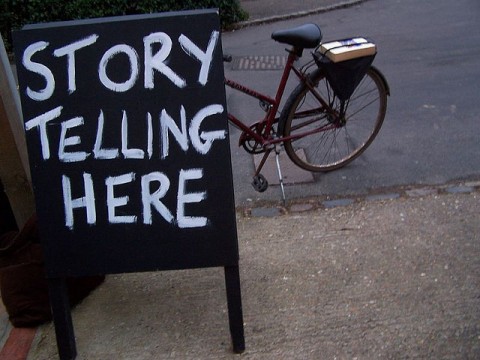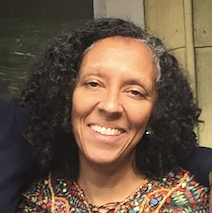February 19, 2018
“It’s not knowing what to do that counts, it’s knowing what to do when you don’t know what to do.”

Last week I had the privilege of co-leading a three day Facilitative Leadership for Social Change training for a group of health equity advocates in Springfield, Massachusetts. It had been a while since I had done a training of that length, and it was a nice opportunity to not only cover more material, but to deepen the conversation and practice. Along the way there were many good questions about what to do around various challenges when one is co-leading a collaborative change effort. And a common response was, “It depends.”
Every group is different, every circumstance is different, and while it might make sense to take some cues from what has been successful in other situations, the caution is not to assume that it will work, or work in the same way, in other situations. This is one reason that I personally do not like the phrase “best practice” when talking about collaborative and facilitative change work. Given the complexity of people and social systems, I find it more helpful to think about “promising practices.”
That said, a promising practice that came up time and time again in our three day training, was the practice or practicing, of ongoing devotion to muscle-building in leadership skills such as process design, facilitation, coaching (leading with listening and inquiry), systems thinking, visioning/imagining, mutual learning and collaborative decision-making/governance. And in undertaking such practice, we at IISC would suggest this is not about achieving perfection. The humbling and exciting thing about collaborative leadership, in my humble opinion, is that it is a life-long learning pursuit and an endless opportunity to deepen understanding of ourselves, others and living systems. For this reason, one of my mantras is:
Practice for presence, not for perfection.
That is, practice can help practitioners get beyond being caught up in simply “learning the scales” of collaborative leadership, in trying to get the skills “right.” Practice at its best can contribute to a state of being more fully present to what is happening in any given situation and being able to work with that in powerfully improvisational ways.
Furthermore, over the past year, there has been a clear call for practice and practices that are explicitly about cultivating spaces to hold difference and tension and trauma. That may be another order of presence characterized by a deeper tuning in and movement away from more transactional processes to ones that are emergent, co-created and geared towards supporting moral courage and imagination. What that can require is vulnerability and a humble sense of “being with.” What it stands to make possible, as opposed to business-as-usual, is growth and real movement forward, together.
December 19, 2017
“Innovation is as much a function of the right kind of relationships as it is of a particular kind of individual vision.”
-Carter Phipps
 The following is a slightly edited post from a couple of years ago. In many ways it feels more pertinent to me now …
The following is a slightly edited post from a couple of years ago. In many ways it feels more pertinent to me now …
Among other reads, I’ve been revisiting the book Evolutionaries by Carter Phipps. Phipps is the editor of EnlighteNext magazine and enthusiastic about what we calls “the evolutionary worldview” and how it is showing up in many different fields, from biology to sociology to philosophy and theology. He sees this perspective as transforming one’s understanding of just about everything.
“The debate about our origins is also a cultural referendum on our future.”
The book is in part retrospective, looking at the history of “the evolutionary perspective” that shook up perceptions of “a fixed world” when it suggested that creation is not static, but ever-changing. This realization is still making waves and sinking in. Phipps writes – “As the fog of fixity lifts, we are finding ourselves much more than observers and witnesses to life’s unfolding drama.” In other words, the view of an evolving world is associated with a sense of movement, possibility, engagement, and response-ability (an ability to respond). Read More
February 4, 2016
“Grateful living brings in place of greed: sharing; in place of oppression: respect; in place of violence: peace. Who does not long for a world of sharing, mutual respect, and peace?”

The following is a slightly edited re-post from a couple of years ago. The impetus for both the re-posting and editing was a recent conversation on On Being with Brother David Steindl-Rast, Benedictine monk, writer/speaker on the topic of gratitude, and known for his participation in interfaith dialogue and his work on the interaction between spirituality and science.
In a recent interview with Brother David Steindl-Rast, On Being host Krista Tippett introduces the topic of gratitude, by saying that at times it can come across as fairly cerebral or precious without much gravitas. Case in point, writer Barbara Ehrenreich, approaches gratitude with considerable skepticism, seeing it as another “feel good” way to be self-satisfied and unconcerned with the world and people who are suffering and oppressed. Yet Brother David, who has lived through war, the end of an empire, and the fascist takeover of his country (Austria), teaches what he calls “gratefulness” as a deep and important spiritual practice.
Gratefulness in Brother David’s view and experience is not at all superficial, or a practice purely for the privileged. It allows for and leans into the very real anxieties of life, and when invoked in “full-bodied ways” can help prevent those anxieties from becoming disabling fear. Brother David acknowledges the tragedies and injustices of the world, while saying: Read More
July 18, 2014

We partnered with a foundation as they built a network of leaders who shared a deep passion for their city. In the beginning, many of the leaders wanted to do something together quickly. We encouraged them to pause, build deeper relationships, and see what emerged. Read More
March 19, 2014

A few different experiences last week reinforced my conviction that storytelling can constitute significant “action” and advancement, including work done in networks for (and as) change. The first was during a session that I co-delivered on behalf of IISC with the Graustein Memorial Fund and The Color of Words, about our work with an early childhood system change effort in Connecticut called Right From the Start. During the conference session we emphasized that one of the biggest leverage points for system change is at the level of narrative and belief systems.
Surfacing the dominant implicit and explicit stories about what is and should be, analyzing the degree to which they align with our values and intentions, and countering/reframing them if and as necessary has been part of the work of Right From the Start (RFTS). Read More
March 4, 2014

I’m just getting back from a four-week sabbatical, a special gift from IISC after seven years of service. I grew in leaps and bounds. A lot of what been brewing inside of me for the last year or two started to come together in a powerful way. My time off was anchored by a week-long, life changing, couples’ retreat in Mexico.
Read More
January 22, 2014
“Love is essential, gregariousness is optional.”
-Susan Cain
 “How Not to Manage an Introvert” (by Nguyen Hung Vu)
“How Not to Manage an Introvert” (by Nguyen Hung Vu)
For several months I’ve been meaning to read Susan Cain’s book Quiet: The Power of Introverts in a World That Won’t Stop Talking. Having completed it this past weekend, I have both a sense of validation (being one of ever-more introverted tendencies as the years pass) and being able to see with new eyes. IMHO, it is well worth the read, and if the thought of tackling the 300 pages is daunting, you might enjoy a taste via Cain’s TED Talk.
Here I wanted to reflect on some of the insights Cain’s work has to offer collaboration and “net work” for change. Read More
January 19, 2014
Check out this relaxed conversation between Dr. King and Merv Griffin. Dr. King reflects on the political context in Atlanta, which he called the most progressive city in the South—and the opportunities it afforded for progress for civil rights. Toward the end, Dr. King reflects on the progress to date in civil rights.
Read More
October 23, 2013
I saw “Gravity” last night. It was a fun thriller, relatively formulaic; and yet, also of great importance. It is significant that “Gravity” has been the top seller at the box office three weekends in a row.
Read More
September 24, 2013

I always describe IISC as a “Collaboration Shop.” The founder of Interaction Associates, David Strauss, authored the seminal book “How to Make Collaboration Work.” I’m all for people working together to achieve a common goal. I make a living helping them do that.
Read More
September 8, 2013

The following post is part 1 of a 2 part series on some collaborative tools and strategies to help us change our selves, change our organizations and change the world. We hope you find it helpful. We encourage you to join the conversation!
We are compelled by a quote from Theory U, attributed to William O’Brien “The success of an intervention depends on the interior condition of the intervener.” Collaborative tools and strategies are only truly useful in the hands of practitioners whose hearts are big enough to hold the complexities, struggles, hopes and fears that accompany the work of transforming racism. Read More
August 26, 2013

We partnered with a foundation as they built a network of leaders who shared a deep passion for their city. In the beginning, many of the leaders wanted to do something together quickly. We encouraged them to pause, build deeper relationships, and see what emerged. Read More










